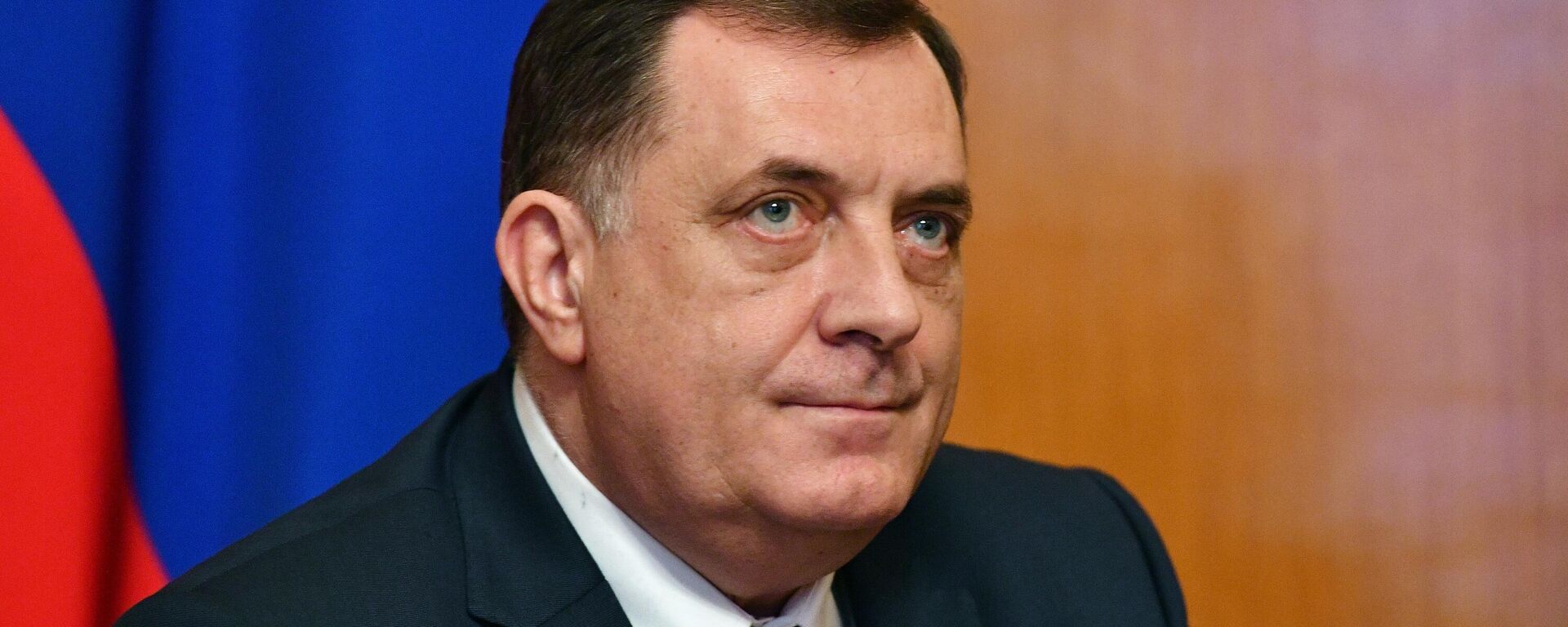https://en.sputniknews.africa/20241025/republika-srpska-wants-to-ask-bosnia-and-herzegovina-parliament-for-consent-for-brics-activities-1068870591.html
Republika Srpska Wants to Ask Bosnia and Herzegovina Parliament for Consent for BRICS Activities
Republika Srpska Wants to Ask Bosnia and Herzegovina Parliament for Consent for BRICS Activities
Sputnik Africa
KAZAN (Sputnik) - In an interview with Sputnik before the BRICS Summit in Kazan, Republika Srpska President Milorad Dodik explained why their Serbian... 25.10.2024, Sputnik Africa
2024-10-25T10:38+0200
2024-10-25T10:38+0200
2024-10-25T10:50+0200
republika srpska
europe
brics
brics summit 2024
yugoslavia
bosnia and herzegovina (bih)
milorad dodik
brics expansion
russia
kazan
https://cdn1.img.sputniknews.africa/img/07e8/03/11/1065608157_0:0:3026:1702_1920x0_80_0_0_17a2bf32aa38b3ecdc9fda3aa33018b4.jpg
Republika Srpska will try to ask the parliament of Bosnia and Herzegovina (BiH) for consent for its activities within the BRICS framework, Milorad Dodik told Sputnik. The BRICS Summit was held in Kazan, Russia, from October 22 to 24, marking Russia's largest foreign policy event of the year. According to Russian Presidential Aide Yuri Ushakov, 36 countries participated, 22 at the highest level.Republika Srpska is one of the two entities within Bosnia and Herzegovina, the other being the Federation of Bosnia and Herzegovina. Established as part of the Dayton Accords in 1995, which ended the Bosnian War, Republika Srpska has its own government and operates with a high degree of autonomy, maintaining separate executive, legislative, and judicial branches.The Dayton Agreement was instrumental in creating a complex political structure to accommodate the diverse ethnic groups in the country—primarily Bosniaks, Croats, and Serbs—following the conflict that arose from the breakup of Yugoslavia in the early 1990s.Despite its significant autonomy, Republika Srpska remains an integral part of Bosnia and Herzegovina's internationally recognized borders. The entity has frequently been involved in discussions and tensions regarding national unity and its status within the country.
https://en.sputniknews.africa/20240523/1066704312.html
republika srpska
europe
bosnia and herzegovina (bih)
russia
kazan
Sputnik Africa
feedback@sputniknews.com
+74956456601
MIA „Rossiya Segodnya“
2024
Sputnik Africa
feedback@sputniknews.com
+74956456601
MIA „Rossiya Segodnya“
News
en_EN
Sputnik Africa
feedback@sputniknews.com
+74956456601
MIA „Rossiya Segodnya“
Sputnik Africa
feedback@sputniknews.com
+74956456601
MIA „Rossiya Segodnya“
republika srpska, europe, brics, brics summit 2024, yugoslavia, bosnia and herzegovina (bih), milorad dodik, brics expansion, russia, kazan
republika srpska, europe, brics, brics summit 2024, yugoslavia, bosnia and herzegovina (bih), milorad dodik, brics expansion, russia, kazan
Republika Srpska Wants to Ask Bosnia and Herzegovina Parliament for Consent for BRICS Activities
10:38 25.10.2024 (Updated: 10:50 25.10.2024) KAZAN (Sputnik) - In an interview with Sputnik before the BRICS Summit in Kazan, Republika Srpska President Milorad Dodik explained why their Serbian autonomous entity chose to participate in the event. He described BRICS as a coalition of independent nations that honor each other's sovereignty and are committed to maintaining global peace.
Republika Srpska will try to ask the parliament of Bosnia and Herzegovina (BiH) for consent for its activities within the BRICS framework, Milorad Dodik told Sputnik.
"There is a mechanism in the BiH constitution that we will try to use, namely: to ask the BiH parliament for consent for our activities within the BRICS framework. This is absolutely legal," he said.
The
BRICS Summit was held in Kazan, Russia, from October 22 to 24, marking Russia's largest foreign policy event of the year. According to Russian Presidential Aide Yuri Ushakov, 36 countries participated, 22 at the highest level.
Republika Srpska is one of the two entities within Bosnia and Herzegovina, the other being the Federation of Bosnia and Herzegovina. Established as part of the Dayton Accords in 1995, which ended the Bosnian War, Republika Srpska has its own government and operates with a high degree of autonomy, maintaining separate executive, legislative, and judicial branches.
The Dayton Agreement was instrumental in creating a complex political structure to accommodate the diverse ethnic groups in the country—primarily Bosniaks, Croats, and Serbs—following the conflict that arose from the
breakup of Yugoslavia in the early 1990s.
Despite its significant autonomy, Republika Srpska remains an integral part of Bosnia and Herzegovina's internationally recognized borders. The entity has frequently been involved in discussions and tensions regarding national unity and its status within the country.


